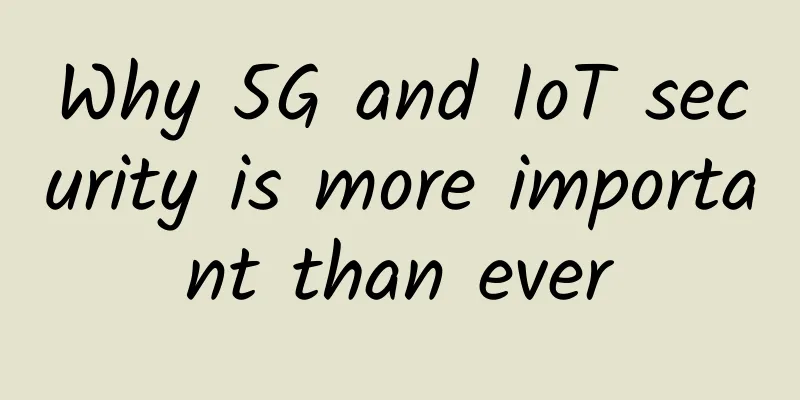What will 5G technology bring to the three major operators?

|
Recently, against the backdrop of ZTE being sanctioned by the United States and the Sino-US trade war, the Ministry of Industry and Information Technology and the State-owned Assets Supervision and Administration Commission jointly issued the "Implementation Opinions on the 2018 Special Action Plan to Deepen Network Speed Up and Fee Reduction and Accelerate the Cultivation of New Driving Forces for Economic Development", calling for the acceleration of 5G industry technology development. Investing in the 5G industry at the national level will have a certain driving effect on the entire communications industry. In the medium and long term, after the 5G network is rolled out, the technology and market characteristics of 5G will inevitably lead to the three operators entering into homogeneous services and low-price competition, which will further squeeze the profits of downstream companies in the entire communications industry, and may even lead to the bankruptcy and transformation of some communications companies.
The impact of 5G network deployment on operators and their downstream industries can be viewed from four aspects. ***. Operators’ revenue has reached its ceiling: From the 2017 financial report of China Mobile, which accounts for 70% of mobile phone users, we can see that the penetration rate of China Mobile's 4G users is close to 70%, which is close to the ceiling of 2G users, and the growth rate of APPU (average revenue per user) has been hovering between ±5% in recent years. The main reason is that since 2015, user data traffic usage has increased fivefold, and the traffic usage of each user has reached 54%, while voice usage has dropped to 25%. In addition, traffic charges have been impacted by China Unicom's "Ice Cream" and other high-volume packages. The traffic of the three mobile operators will all be reduced in price in the future. Simply put, the number of mobile users will reach the ceiling in the future, and the ARRU value will remain unchanged or will decrease. In other words, in the 5G era, the revenue growth of operators in the future will be basically weak. Second, 5G technology will reduce investment costs: From the perspective of 5G network technology, 3GPP (5G protocol formulation organization) will stipulate that the future 5G network will first be a single network, and there will no longer be the coexistence of multiple 2G-4G protocols. At the same time, due to technological advances, the number of vertical nodes in the network has been compressed, which means that the investment in equipment and engineering maintenance for future 5G construction will be reduced. According to Japan's NTT Docomo's estimates, in the future, 5G will reduce operators' investment costs to 50% of the 4G era through new technologies, which will greatly affect the number of orders and revenues of equipment and service providers downstream of operators in the future. Third, the single standard of 5G terminals will compress the mobile terminal market: 5G terminals will be unified with only one standard, and mobile phone users will not need to distinguish mobile phones according to different operators. For example, when you go to buy an iPhone 5G mobile phone, you don’t need to ask the clerk whether the phone supports China Mobile, China Telecom, or China Unicom. According to the "Domestic Mobile Phone Market Operation Analysis Report" of the China Academy of Information and Communications Technology, as of the first quarter of 2018, my country's mobile phone sales have been negative for 13 consecutive months, and sales in March 2018 fell by 27% year-on-year. The sales of mobile phones can fully illustrate the user saturation. If 5G is unified in the future, it will only further compress the market size of the entire mobile phone sales. Fourth, in the future, operators will lose the right to bundle users: After 5G, operators will vigorously promote esim cards (embedded sim cards). The mobile phones purchased by users in the future will have sim cards embedded directly. Users only need to select operators through software according to their own needs. Such seemingly small technical changes may actually change the business model of the entire communication operator. Individual users may no longer be bound by a single operator. It is conceivable that the mobile phone or APP portal in the future will hijack the user's right to choose an operator. Users may not be aware that the mobile phone and APP will automatically help users choose the operator network with the lowest rate and better signal in the current network location. The original advantage of China Mobile in attracting users by wide coverage will be weakened. If China Mobile cannot converge its prices with the other two, users in the future are likely to use low-rate operator networks (or wifi) in fixed places most of the time, and only choose mobile when the signal is not good at some time. Therefore, in the future 5G era, the three operators can only compete with homogeneous low-price networks, thereby further compressing profits. Compared with the US telecommunications operator market, the US has also entered an era of operator oligopoly. The profit margins of the three largest operators, Verizon, AT&T, and T-Mobile, have gradually converged in recent years, and the EBITDA margins have diverged from 25% at the peak in 2014 to less than 10% at the peak in 2017. Like China, the three operators have also gradually launched large-volume packages. According to estimates by US operators, after entering 5G, the profit margins of China's three operators will further converge, and network construction investment will also be further compressed. |
<<: Looking forward to the love and hate of IPv6 deployment in the new Internet era
>>: 5G scenarios and technologies bring new security threats
Recommend
Huawei's Intelligent IP Network Solution Creates a Simplified 5G Bearer Network
At the HAS Analyst Conference recently, Chen Jinz...
AI World: Eight AI trends to watch in 2018
Computationally speaking, the big data analytics ...
HostHatch: 1TB VPS with a large hard drive starting at $35 per year, in data centers in Hong Kong, Singapore, Japan, etc.
HostHatch updated the latest information on LET t...
Quality, innovation and excellence, Ruijie Networks releases new products for general education in smart classrooms
On April 20, Ruijie Networks held an online launc...
spinservers: $59/month - E3-1280v5, 32GB memory, 1TB NVMe, 30TB/10Gbps bandwidth
spinservers has just released several promotional...
inetWS: $3/month KVM-2GB/30G SSD/10TB/13 data centers including Los Angeles and Seattle
inet.WS has released a 25% discount coupon for th...
Inspur Networks launches smart AP to connect new wireless ecosystem
With the rapid development and popularization of ...
How to choose an API management platform for your business
【51CTO.com Quick Translation】As we all know, API ...
To promote the building of core capabilities, Huawei proposes a top-level design framework for operators' digital transformation
Today, at the MWCS 2021 media analyst pre-communi...
Learn InnoDB tablespace
[[408831]] This article is reprinted from the WeC...
A multi-dimensional interpretation of the construction of my country's comprehensive network governance system
At present, in the ever-changing and complex inte...
HostYun: Hong Kong high bandwidth VPS monthly payment starts from 18 yuan, single core/1G memory/10G SSD/50M port
Let me share some information about HostYun's...
The interviewer asked me to turn left because of the thread pool!
A few days ago, my friend had an interview. Durin...
5G and IoT: The mobile broadband future of IoT
5G is the fifth generation of mobile, cellular te...
Network Protocol: From theory to practice, a comprehensive understanding of DNS (theoretical part)
Everyone must be familiar with DNS (Domain Name S...









